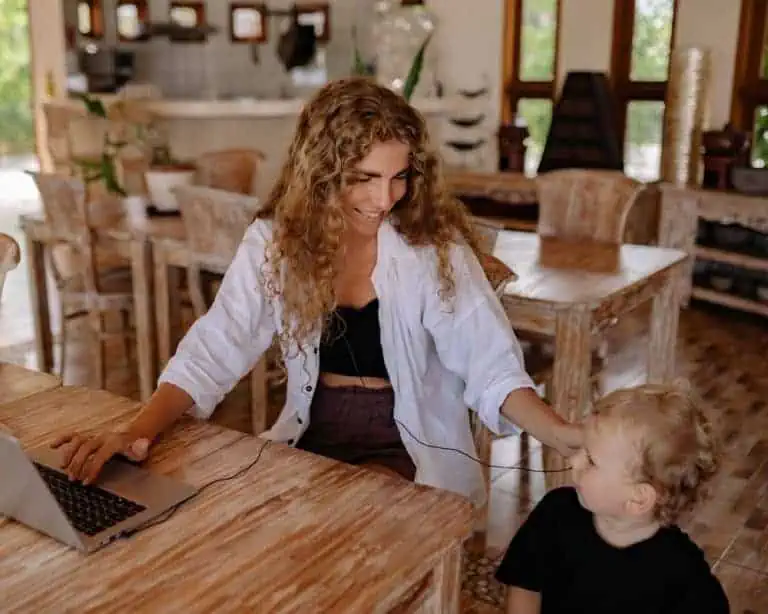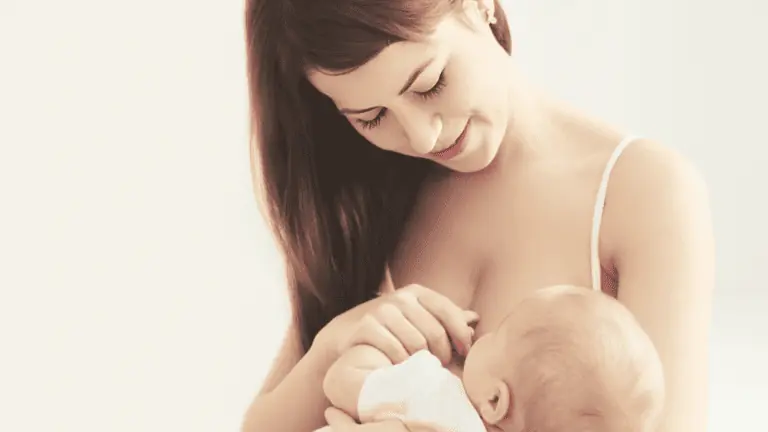Infant Sleep and Its Relation With Cognition and Growth
This post may contain affiliate links. As an Amazon Associate, I earn from qualifying purchases.
This week Rachel Burns, a fellow mom, brings us some tips for baby sleep. It’ s a great review of why it matters and what we can do about it as mamas!
During the first years of a baby’s life, you’ll watch numerous vital developmental changes and active physical growth. If it’s your first kid, you’ll be astonished at how quickly he/she grows and becomes more and more intelligent. It’s just a magical process!
You, as a parent, should consider lots of factors to enable your little one to develop well, and baby sleep is a crucial brain activity for adequate development that plays a key role in early life. That’s why moms-to-be and new mommies have to be aware not only of necessary baby stuff, e.g., best glass baby bottles, infant sleep must be in their area of interest too. Well, frankly speaking, we can hardly imagine a mom who doesn’t care for her baby’s sleep. 🙂
We created this post to provide you with the must-know info on the infant’s sleep. After all, a baby who gets a good night’s rest and a quality nap is far more patient, tolerant, and engaging.
Related read: How Can I Help My Baby Sleep?
Why Infants Need A Healthy Sleep
We all instinctively know why babies need a good, long, uninterrupted sleep, however, many of us struggle to improve our own and our kids’ sleep schedule. Sometimes lifestyle factors (long working days, busy schedule, other commitments) push back bedtimes, and babies sometimes even miss naps. Unfortunately, it can seriously impact brain development.
Did you know that lack of sleep in the early years may affect a kid’s IQ, increase the chances of learning and behavioral problems in the future?
Here are the top reasons why your baby needs a good sleep:
Baby sleep improves brain development.
There is a strong connection between sleep and adequate brain development. Getting enough sleep helps increase brain tissue (so-called grey matter) and change brain circuits (synapses). The most important period for brain advances is during the first 3 years of life.
Baby sleep improves learning.
You may be surprised but an infant’s brain is usually busy throughout the night, little ones learn during sleep. Furthermore, studies showed that children who take naps have a better memory.
Baby sleep improves growth.
Poor sleep can lead to a deficiency of the growth hormone (GH). GH is produced most efficiently during deep sleep. That’s why good sleep can’t be overestimated when it comes to a child’s growth.
Baby sleep improves heart health.
Kids who suffer from sleep disorders are prone to diabetes, obesity, and other health problems. They have elevated cortisol and glucose levels at night that increases the risk of heart-related ailments. Therefore, adequate amounts of good sleep prevent vascular damage risks in children.
Related read: Baby Care Tips for New Moms
What Is Healthy Baby Sleep?
The first rule of thumb, healthy sleep must be uninterrupted. It means that your little one should get quality sleep without being woken up by lights, noises, and other distractions. Next, baby sleep must be in sync with his/her internal clock. In other words, your baby should sleep when he/she wants to or feels like sleeping.
Here is a baby sleep chart:
(Editor note: this is TOTAL hours, of course babies do not sleep this long at once. You can expect them to wake up every 1-3 hours the day and 2-5 hours at night as a newborn- the gaps of awake time and sleep time will spread from there!)
| Baby’s age | Total sleep hours | Nighttime sleep | Daytime sleep |
| Newborn | 16 | 8-9 | 8 |
| 1 month | 15.5 | 8-9 | 7 |
| 3 months | 15 | 9-10 | 4-5 |
| 6 months | 14 | 10 | 4 |
| 9 months | 14 | 11 | 3 |
| 1 year | 14 | 11 | 3 |
| 1.5 years | 13.5 | 11 | 2.5 |
| 2 years | 13 | 11 | 2 |
What Is Baby Sleep Regression?
Usually, parents an unpleasant but normal thing called baby sleep regression. It happens to children of different ages, the first one may occur at 3-6 months. Sleep regression is a period when a baby, who’s been a formerly perfect sleeper, starts fighting sleep. He/she might wake up in the middle of the night and/or have trouble settling down when it comes to daytime naps. This period lasts about 2-4 weeks. Unfortunately, parents can’t prevent baby sleep regression, it’s a normal part of childhood.
Why won’t a baby sleep? What causes sleep regression?
- Teething pain
- A growth spurt
- Reaching a new milestone
- Traveling, especially if it involves a new environment
- Disruption in routines, e.g., starting a daycare
- An illness, e.g., ear infection, cold, allergies, etc.
Additionally, children may experience sleep disruptions due to exhausting or even exciting days that leave them too jittery to have good, quality sleep. Foods or drinks that contain caffeine can make it hard for a little one to fall asleep or stay asleep too.
Related read: 10 Must Have Products for Baby’s First Year
How Can You Help Your Baby Sleep?

<img alt = “little prince”>
Watch room temperature
Children sleep well when the room temperature is cool and consistent (up to 73 degrees Fahrenheit). Also, don’t over-bundle your baby! Here, the rule of thumb is that your little one should wear what you have on to feel comfortable, plus one thin layer. This way, it’ll be easier to regulate the baby’s temperature.
Share the room but do not share the bed
The American Academy of Pediatrics recommends sleeping in the same room with a baby until he/she is at least 6 months (ideally 12 months); however, do not sleep in the same bed. Room-sharing reduces the risks of Sudden Infant Death Syndrome (SIDS), helps babies sleep for longer stretches, and encourages breastfeeding. Organize a nice, cozy, comfortable place for your sweetheart.
Dim the light
Try not to use a night-light since light means daytime to babies. If you block any light you can, you’ll keep your little one snoozing for longer. Adjust a dimmer switch to a lamp, and when you need to feed, turn it on slowly. Don’t forget to turn it off when you’re done.
Sooth with music or sound
When it’s time to sleep, turn on baby sleep music or white noise. Your little one will learn to associate these sounds with sleep. Make sure not to turn music or white noise high, keep it on the lowest settings so that the baby feels comfortable.
Related read: 18 Baby Hacks that Make Mom Life so Much Easier
Sleep training baby
When a baby is 4 months or more, it might be time to sleep train your child. Let him/her self-soothe. Do not pick the baby up to rock to sleep and then put him/her back to bed, a baby needs to fall asleep on his/her own. Do not rush, give your little one some time to settle down. This process takes time, you should be patient, but it’s totally worth the effort!
(Editor’s note: Sleep training is a great tool for some mom’s- but is not necessary for your baby unless you are desperate for more sleep. Choose a sleep routine that works best for you mama, follow your intuition!)
Was our post helpful? Share your opinion with us! And if you have your own tips and tricks on how to put your baby to sleep, feel free to write them in the comment section below. We appreciate your experience!
Author’s bio:
Rachel Burns is an experienced copywriter and photographer with a design diploma. She works with startups, entrepreneurs, bloggers, and companies from around the world. In addition to writing articles and promotional materials, she enjoys hiking, reading, cooking, and spending time with her family.







